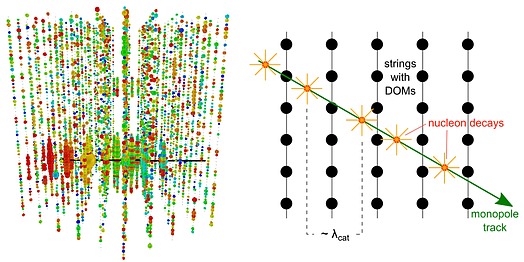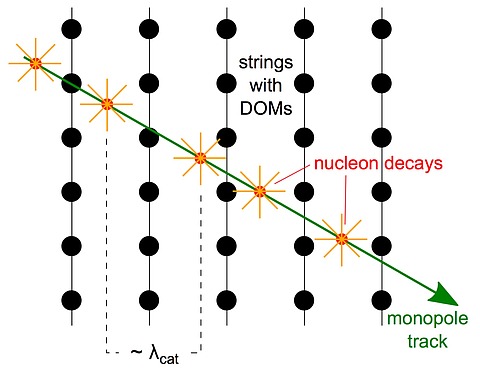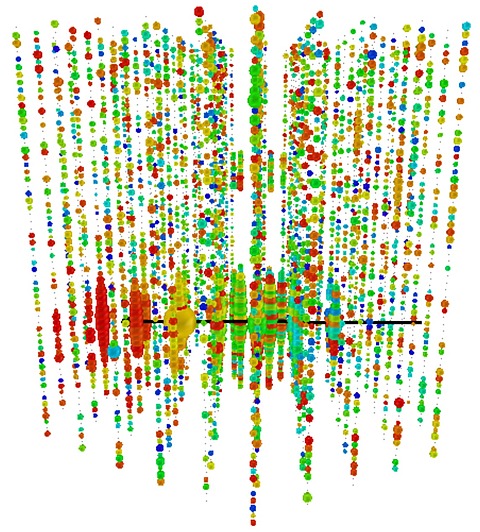
[#9] MIND AND MAGNETIC MONOPOLES: MATTER, MIND AND MAGIC
[LUCID LIVING #9] Mind and Magnetic Monopoles: Matter, Mind and Magic
By Piet Hut
Breakthroughs in science are often triggered by a realization that one or more of our assumptions were wrong. In the rapid growth of experimental and theoretical insights in neuroscience, which of the underlying assumptions could be candidates for revision, potentially inducing a big shift in understanding?
“The temptation is to view information as derivative”
A basic premise is that anything to do with cognition is layered onto a material substratum. Forget about consciousness for now, and start with information processing, whether by humans, animals, or computers. Or even simpler, forget about the processing part, and look only at information. In itself, information is not physical, but it appears in the world only with the help of physical carriers: carved in stone, ink on paper, or bits encoded on a hard drive, or in RAM.
The temptation is to view information as derivative, as less fundamental than matter. We find matter without clearly encoded information attached, but we don't find information freely floating around without matter attached.
If we add the time dimension, and look at active information processing, this conclusion is only strengthened. We need an organism or mechanism to process any information. Returning to the question of consciousness, here is the typical, often tacit, assumption in neuroscience: adding whatever it is that makes information processing in the brain conscious, we still need matter to let consciousness appear. The conclusion that there are no "ghosts", as they are technically called in philosophy, no forms of consciousness that are free floating without being anchored to matter, is a firmly held and very reasonable interpretation of available observations in science.
“Is consciousness a byproduct of material processes?”
Does this mean that consciousness is derivative, a byproduct of material processes? Or could it be that reality admits two types of processes, material and conscious, both equally fundamental? Descartes certainly thought so, but had trouble finding a connection. Interestingly, some leading neuroscientists have recently started talking about panpsychism, as a general idea that perhaps consciousness is present in all forms of matter, albeit it typically in a more latent form.
But what could it mean? As scientists, we are so steeped in panmaterialism that positing a simultaneous panpsychism begs the question of the relationships between both 'pan's.
It occurred to me that physics can provide a hypothesis in a very natural way, through the notion of symmetry breaking. In short, even when the underlying laws of nature are symmetric, this does not mean the intrinsic symmetry is always reflected in the phenomena we observe. For a pen standing on its head, there is no preferred direction for it to fall, but when it falls, it will fall in one particular direction, thereby spontaneously breaking the initial symmetry.

Electromagnetism is another example. Maxwell's equations of motion are effectively symmetric with respect to electricity and magnetism. The relationship between the two is called a duality in physics. Yet while there are material carriers of electricity, such as electrons, we have never seen a corresponding carrier of magnetic fields.

There seems to be no fundamental reason for this absence. In fact, there have been dedicated searches for so-called magnetic monopoles, but so far these have all turned up empty. The figures here are from a recent paper putting upper limits on the density of magnetic monopoles, provided by the IceCube collaboration). The preferred explanation is that magnetic monopoles, if they exist, are very heavy, and therefore were annihilated deep inside the first second after the Big Bang, together with other heavy particles that may have been abundant during that time. As a result, all magnetic fields that we encounter are generated indirectly, by the motion of charged particles.
Maxwell solved the magnetism-electricity problem by showing a complete natural duality between the two, as aspects of a unified theory of electromagnetism. Could the mind-body problem perhaps be solved in a similar way? Could both dualities be broken only through the absence, as far as we know, of magnetic monopoles and "ghosts"?
In other words, could Descartes have been right, in some way, in his desire to unify mind and matter, if only he had known about field theory and spontaneous symmetry breaking? And could a magical appearance of a genie from Aladdin's lamp be actually possible were it not for the symmetry breaking accident?
“Is the magic of Aladdin’s genie thwarted by spontaneous symmetry breaking?”
I am not putting this forward as a serious theory; for one, what I have just mentioned is only an idea, which would need to be worked out in much more detail. Rather, my point is one of raising caution. It may seem obvious that mind needs matter as a substrate, and is therefore a derived quantity, as an emergent phenomenon. But as my simple analogy shows, mind and matter may well share far more symmetry, albeit hidden through spontaneous symmetry breaking.
Whether such an observation will have any practical consequences, will have to be seen. In the case of Maxwell's equations, there is the natural possibility of the restoration of a symmetry in the local absence of carriers of either type, in the vacuum with neither electric nor magnetic monopoles. As a result, Maxwell's equations allow solutions in the form of electromagnetic radiation, from radio waves to light to X rays.
Would a hidden symmetry between matter and mind allow new phenomena that might give us new clues about the origins and nature of consciousness? Nobody knows, but it could form a novel challenge to the general assumption of matter in space and time as existing prior to any form of consciousness. And it could even pose a challenge to the need for matter to be present, as is posited in panpsychism.
“Matter and cognition could be dynamically connected, just as matter and spacetime are.”
Perhaps it is too early to postulate a simple form of panpsychism as somehow an overlay, draped over a panmaterialist foundation of an insentient universe of matter, where matter in turn is draped over space and time. After all, general relativity shows us how spacetime and matter are intimately and dynamically connected. Perhaps cognition and matter have a similarly intimate connection, through some form of spontaneous symmetry breaking.
Piet Hut is President of YHouse (where this blog is hosted), Professor of Astrophysics and Head of the Program in Interdisciplinary Studies at the Institute for Advanced Study in Princeton, and a Principal Investigator and Councilor of the Earth-Life Science Institute in the Tokyo Institute of Technology.